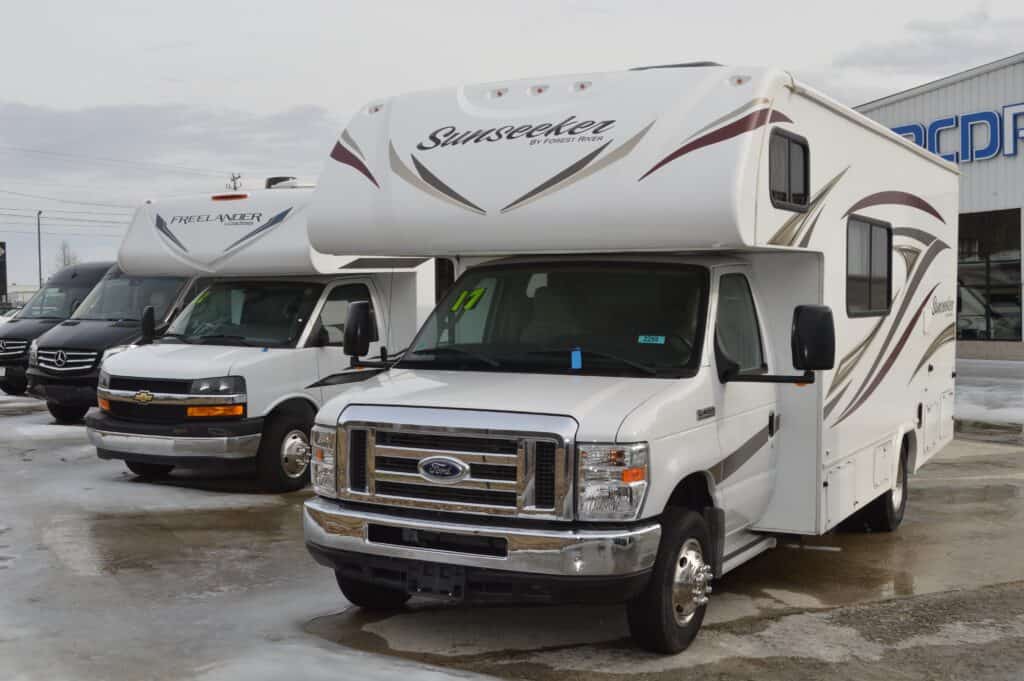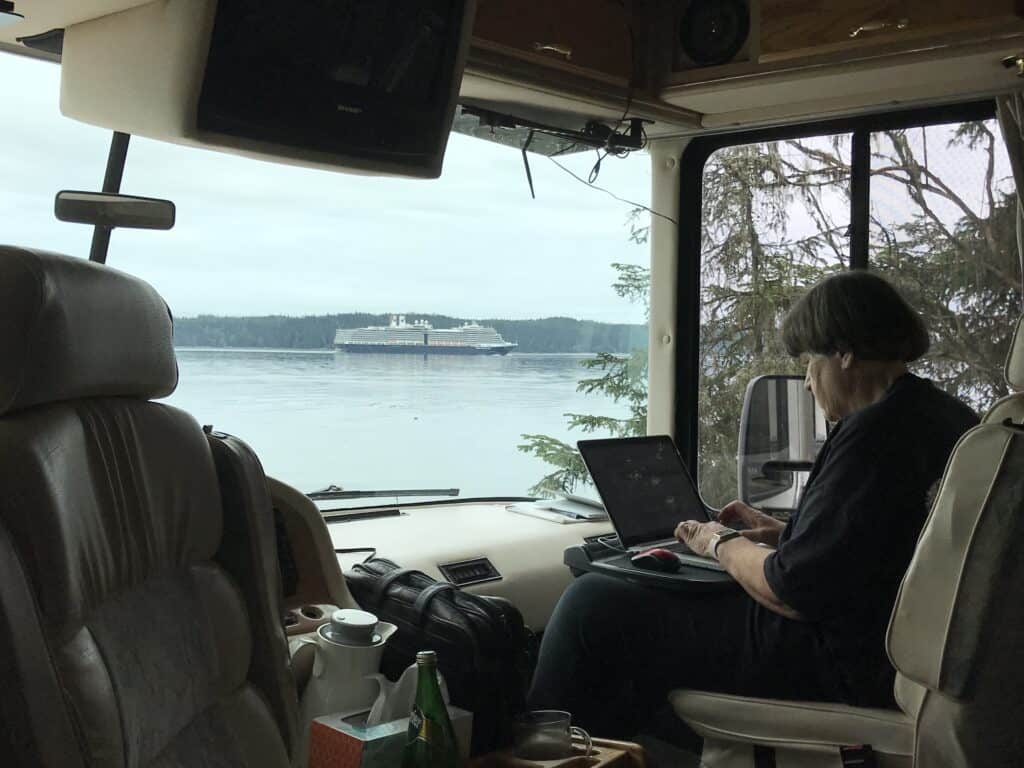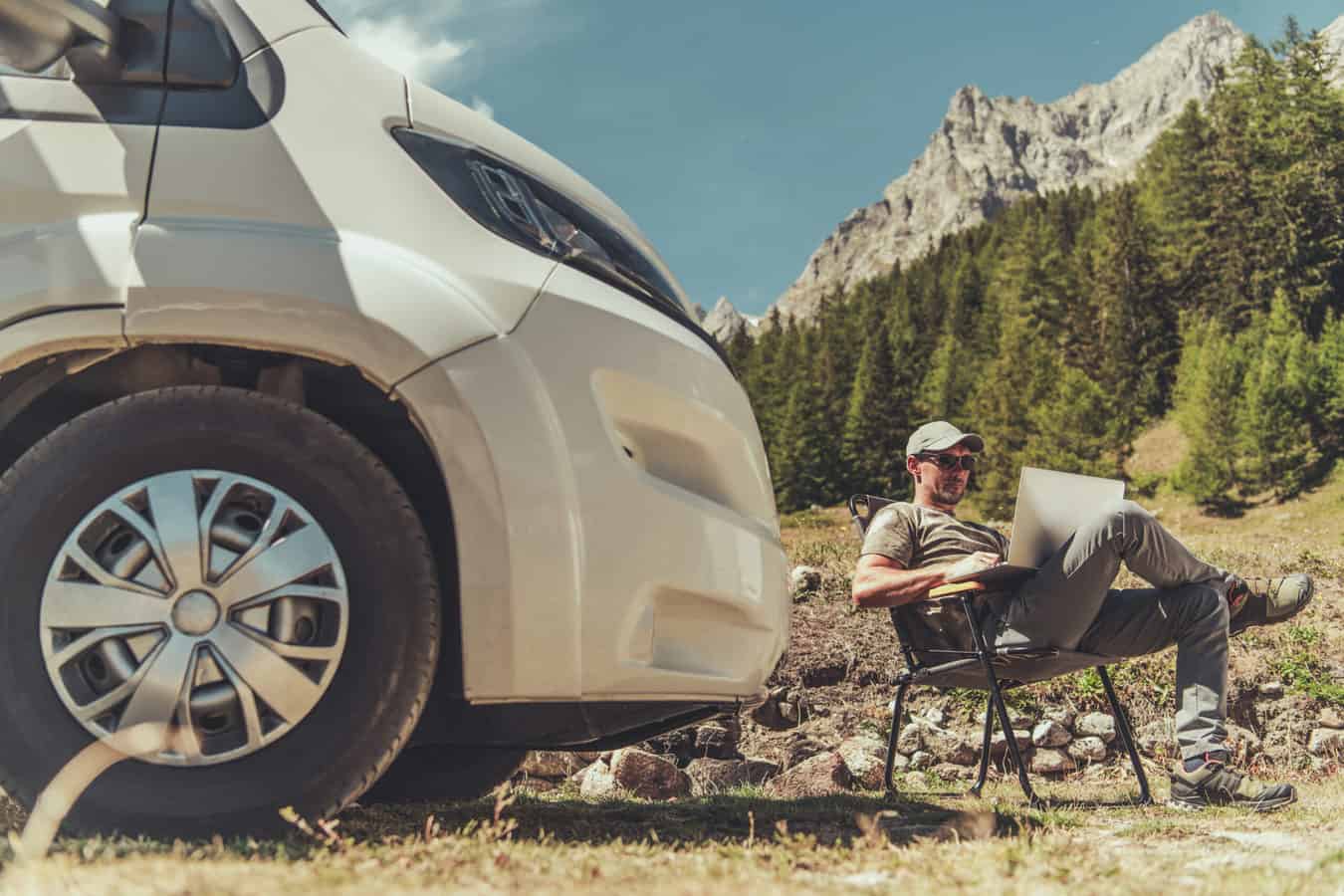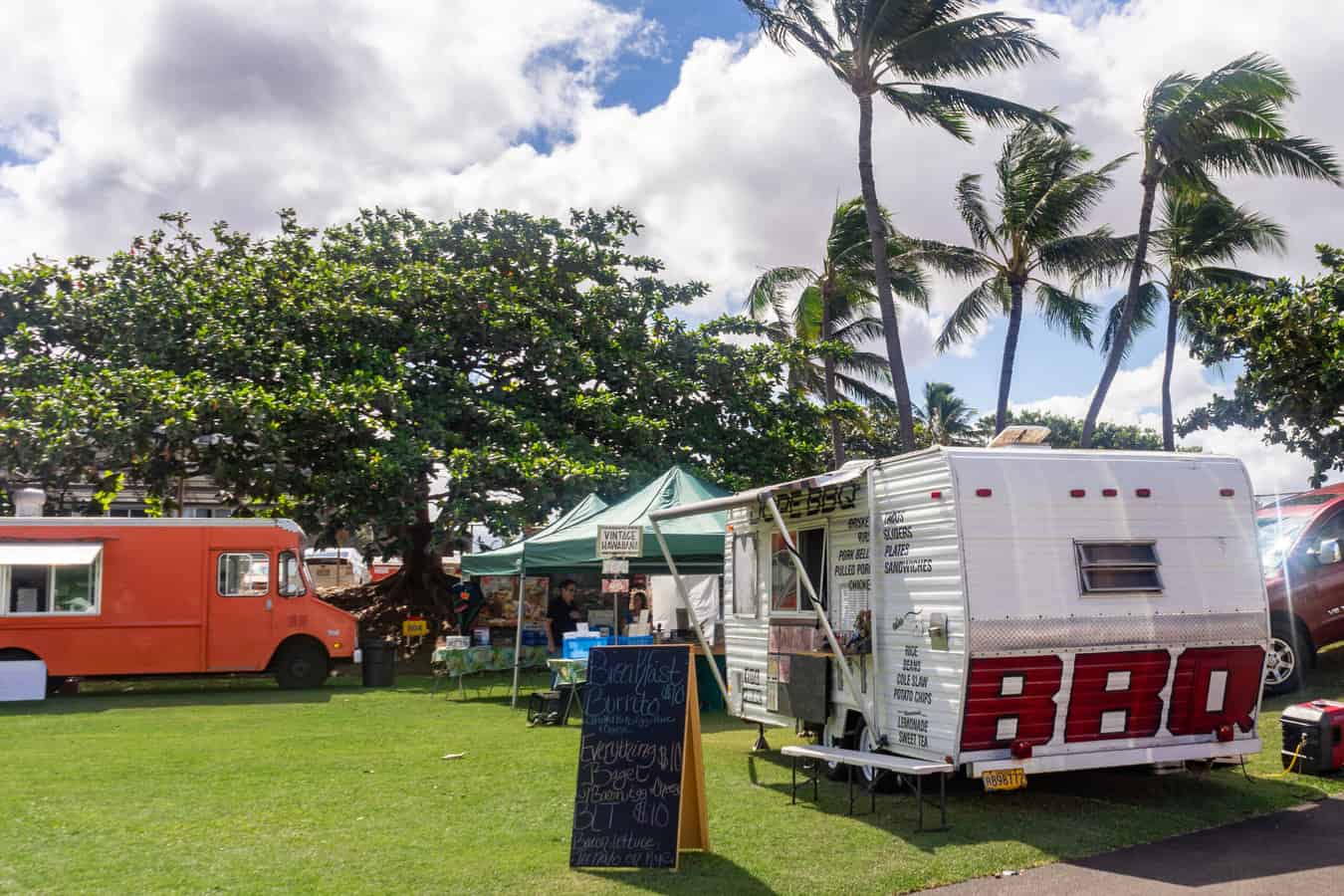
Sponsored by National Vehicle
Is Now A Good Time To Sell Your RV?
Most people recognize that the past two years have been like no other time in our collective memory. The pandemic changed virtually everything and profoundly impacted the way we think about all of life’s challenges and opportunities.
Like everything else, the RVing industry was deeply impacted by these events. The demand for RVs during the pandemic skyrocketed. At the same time, RV manufacturers struggled with staffing and supply chain shortages. This resulted in RV shortages, rising prices, and long lists of back orders.
Today, the threat of COVID may not be gone, but people are generally moving on and trying to put the pandemic behind them. So, is the RV boom over, and if it is, where does your RV value stand now?
Supply and interest in RVs
During the past two years, RV manufacturers did their best to meet the growing demand under very difficult circumstances, and they are finally coming out on the other side of that cycle. Their inventory levels are on the rise, back orders are being fulfilled, dealers are receiving abundant new RVs, and interest in RVing is still strong, even with rising gas prices, interest rates, inflation, and rumors of a recession.
Why are people so enthusiastic about RVing?
During the pandemic, there was an increase in RVing because people saw it as a way to safely recreate without boarding crowded planes or cruise ships. RVing provided a fun alternative that could be safely enjoyed by the whole family, even in a pandemic. The current RV surge became a full-fledged RV boom.
Remote work & remote learning
Additionally, the pandemic forced us all to rethink and adjust our long established routines. Suddenly, knowledge workers were expected to work remotely and online learning replaced classroom instruction.
The lockdown revealed that the destructive routines of long commutes and long work weeks was not necessary for productivity. The grinding treadmill of daily routines were upended overnight. People began to recognize that they could (and probably should) restructure their time and priorities.
For millions of young adults, it was a time of reckoning and reevaluation. Young people who had never considered their own mortality were suddenly dealing with the untimely deaths of loved ones, family, and friends, and that compounded their decision to rearrange life priorities. All these social changes worked together to shift the demographics of RVers to a younger population.
A younger demographic fueled the RV boom
As a result of these changes, many people were no longer willing to wait until retirement to start RVing. They realized that if they could work from their kitchen or bedroom, they could work from an RV if they had an internet connection. Their children could also access online learning resources from an RV, just like they did in their homes.
This new freedom meant the whole family could explore new places and broaden their horizons in an RV. This realization changed everything, and many younger people seized this new opportunity to live a more spontaneous and adventuresome life.
Red hot real estate market
Other factors also contributed to this trend of a younger RV demographic. During the pandemic, housing prices continued to climb, making it even more attractive for young adults and new retirees to sell their houses and buy an RV.
Thousands of people reprioritized their work/life balance, traded their fixed address for a mobile lifestyle, and permanently abandoned their pre-pandemic mind-numbing routines that was stealing their life and their family time. Many decided to live their dream now, rather than wait for an uncertain future…a veritable mantra during the RV boom.

Rising housing costs
All these social changes fueled a growing interest in RVing, and younger RVers infused the industry with new energy and enthusiasm. Additionally, new challenges surrounding rising housing costs (with increases in both mortgage and rental rates) further motivated people to look for alternative residential options.
As a result, full-time RVing is a growing trend that checks many boxes. In lieu of paying higher rental rates, many people are opting to invest their money in an RV that gives them total freedom to travel, explore, and engage in new life experiences. Also, the growing popularity of minimalism dovetails perfectly into the full-time RV lifestyle.
Working from the RV
The pandemic changed the world and fueled the RV boom, and the genie escaped from the box. Employers are now advocating for workers to return to the office, but many of their employees are pushing back.
Employees complied with the mandate to work from home when it served the corporate interest. But now they know that remote work is possible, and they are not willing to go back to their old destructive routines. They reason that if they could productively work at their kitchen table, they could be just as productive working in their RV.
So, what’s the general state of RVing right now?
There were millions of RVs on the road before the pandemic, and that number has only grown over the past two years. Consumer sentiment for RVing is as strong as ever.
Fall RV shows (a barometer of consumer interest) were well attended with brisk sales activity. A survey conducted by KOA reported that over 25 million Americans intended to camp over the Labor Day weekend in 2022, and millions of people are eagerly pursuing new recreational opportunities every day now that the oppressive constraints of the pandemic have faded into our collective memory.
Inventory levels of both new and used RVs has been growing as manufacturers solve staff and supply chain challenges, and the private market for used RVs is still hot.
Should you sell your RV?
If you own an RV but you’re done using it, and you’re wondering what it’s worth in the ever-changing market, you can easily discover its real-world RV value by contacting National Vehicle for a free valuation. Also, if you are considering selling it, do it now because waiting will just cost you money.
Ready to buy an RV?
On the other hand, if you are one of the thousands of people itching to get started RVing, this is the perfect time to buy an RV. There is a wide selection of new and used RVs in the market, a little less competition because of the season, plenty of RV financing, and recreational opportunities abound all across the country.
Whether you’re a young adult or a recent retiree, if you’re ready to start a new chapter in your life that includes full-time or part-time RVing, check out this For-Sale-By-Owner inventory to get started.
Get help to start living your dream now
RV boom or not, a private market purchase doesn’t need to be intimidating or risky if you contact the professionals at National Vehicle. Their only job is to help RV buyers and sellers safely transact that business, so you can get started enjoying your new RV right away.
We believe that buying and selling a vehicle should be hassle free, safe and fun. Our mission is to deliver a first-class customer experience through effective communication and tools to help sellers sell their vehicles as quickly as possible. We’re standing by with everything sellers and buyers need to sell and buy.
National Vehicle





Interesting article but somewhat overly “rosey” (IMHO). Left unmentioned were some of the negatives. RV build quality was an issue before COVID and has become even more so during the pandemic as some manufacturers (not all), rushed production to meet demand. Add to that, retailers who are more interested in sales then service and the result is a litany of horror stories found on almost every RV forum. As a result I and many other experienced RV’er recommend hiring a certified RV inspector for both a used or new RV. Yes, it can be that bad.
And then there is the issue of over crowded parks and camp grounds. It’s gotten so bad that major National Parks have had to use a reservation system. And, scoring a reservation in a popular park or recreation area can require more luck then a powerball win.
The only thing sustaining the RV craze is (IMHO), the alternatives are worse. While RV’ing has it’s drawbacks, they pale in comparison to airport/airline chaos or cruise ship contagion. I wonder however if the RV world will rectify some (all) of these negatives before the competition gets their acts together?
If you want to purchase a used, or new RV, be very careful who you buy from. I bought a used travel trailer from Sprad’,s in Reno, NV and got a lemon they refused to fix. The AC caught fire and they replaced it making more money off the insurance. The shower leaks and they were advised of this the minute I got it hooked up to water the day I bought it. Dealers like this can be extremely shady thinking that purchasers have no recourse. The fire was caused by bad wiring that was not vetted when they took the trailer as a trade in. Not only did they overcharge me, they made money through kickbacks from the extended warranty company and the financer. Be informed when you are looking.
did you have it inspected by an independent NRVIA RV inspector? you would not buy a house without a home inspection, right?…. JUST SAYING….due diligence goes a long way and not blaming someone for a fault of your own
I and I am very sure many others are wondering the same as Debbie in wanting to know about quality now that the Rv manufacturers can breathe. The quality of a Peterson Excel, NuWay, Carriage and Pre-Thor DRV still cannot be matched in Quality today even though they all closed shop around 2015. I personally have owned an Excel and A Carriage now with a Heartland.
Please put together an article about what the manufacturers are doing to look into Quality Control. It is one thing to say it and another to actually implement.
Great article & answers where we are in RVing.
Cheers!
JP
I know its early but has the quality of rv’s in general returned?